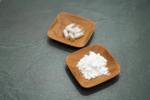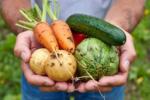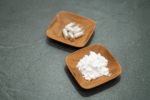How to Eat More Fiber Now | Healthy Gut Guides
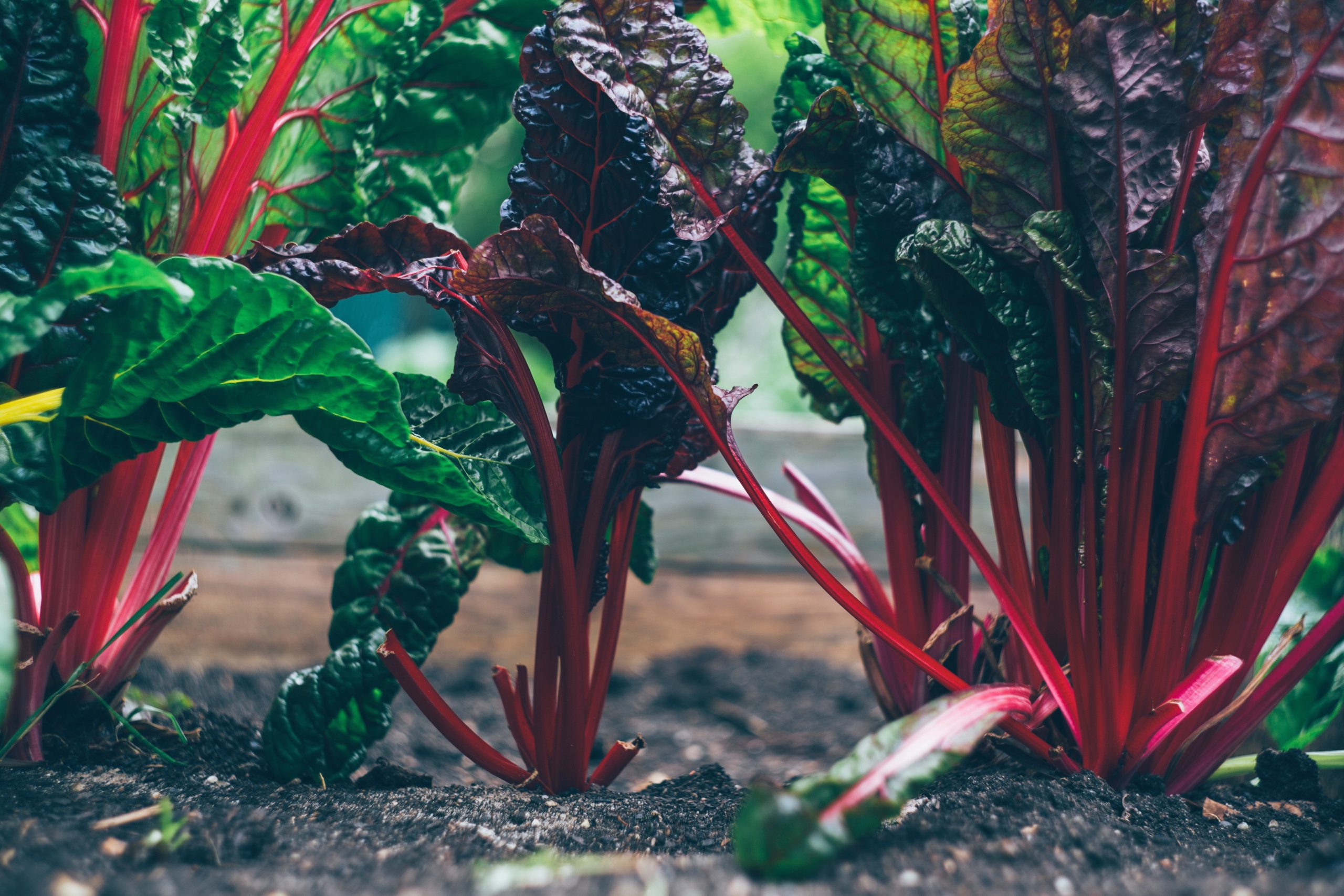
Don’t plant good crops in bad soil.
Can you imagine 95% of Americans do NOT eat adequate levels of fiber? Yes, 95%! This problem is so profound that recently an entire scientific article titled “Closing America’s Fiber Intake Gap” was written about just this topic. Here’s the good news—you’re not alone!
When you think of gut health, probiotics may pop into your head. But probiotics are NOT the answer. Probiotics are NOT the foundation of a healthier you. Here’s why…
The foundation of all human health is gut health. And the foundation of all gut health is vegetables. What makes vegetables so special? FIBER! Fiber is the food our gut bacteria eat and it lays the foundation for a diverse and fertile “soil” in your gut microbiome. Just like a thriving forest full of diversity starts with rich, nutrient-dense soil, so does your gut microbiome. Your gut health, and ultimately your overall health, starts with fertile soil fed with fiber. Learn more about fiber and gut health here.
When we eat vegetables, a certain amount is broken down (digested) in the stomach and small intestine. The undigested portion (fiber) then travels on to the large intestine where it serves as food (prebiotics) for your gut microbiota (gut bacteria).
The bacteria in your gut love fiber and, in turn, use that fiber to produce short chain fatty acids (SCFA) including butyrate, propionate and acetate.1 Propionate and acetate enter the bloodstream and help regulate blood sugar and insulin. Ninety percent of butyrate, however, is used for energy by mucosal cells that reduce gut permeability.2,3 Everyone needs gut barrier protection!
Butyrate is our gut barrier protector helping heal small holes in our gut lining (aka large intestine lining) so bacteria and toxic waste don’t leave the gut and escape into the bloodstream. Read more about fiber, gut health and tributyrin.
SO, WHY SHOULD WE CARE ABOUT OUR GUT LINING?
Well, first and foremost is that your gut lining is your last barrier against bad bacteria getting to internal organs. No one wants viruses and bad bacteria running wild in the blood stream! We want a thick gut lining to protect us, and also to optimize some important functions like synthesizing hormones and neurotransmitters that calm us and make us feel good. Calming and mood-enhancing neurotransmitters like dopamine, serotonin, and GABA are synthesized in the gut, not just the brain. 4,5 They travel from the gut to the brain via the vagus nerve as well as other systems such as the endocannabinoid system.6
When we feel down, stressed, unfocused or become more forgetful, the gut can play a primary role. Since vegetables provide food that keeps the gut happy, healthy, and functioning optimally, they play a central role in mood, attention, and focus for overall cognitive health.7,8
Likewise, when we feel bloated, constipated or generally have gut disturbances, gut permeability can play a primary role. Vegetables play a central role in gut health by helping shore up weaknesses in the lining of our gut.
Shoring up our gut lining is why we launched CoreBiome®
The #1 cause of bloating is constipation. You can be regular and still be constipated if you strain in having a bowel movement, have stool that looks like rocks/pebbles, or don’t feel empty afterward.
CoreBiome is a patented and unique type of butyrate that helps keep the colon functioning optimally. But better pooping is only HALF the story of gut health. The second half is making a better gut microbiome to set your NEW DIRECTION.
You can picture your body’s health like a seesaw. While one side of the seesaw may go up or down, the goal is to get the seesaw to return to level—equally weighted on each side. This balance is what CoreBiome® does in our gut. CoreBiome provides not only butyrate to nourish the whole gut – from small intestine to colon – but also stimulates butyrate-producing bacteria just like a prebiotic. CoreBiome is like a prebiotic and postbiotic in one. When you ingest fiber and/or supplement with CoreBiome®, you provide your gut microbiota life and nourishment. The result is better poops and better health.
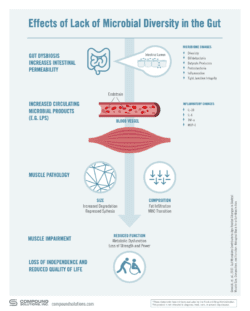
Fiber and CoreBiome are the foundation of the ultimate health solution – gut health.
Other aspects include polyphenols (i.e. green tea) and resistant starches like potato and green banana.
CoreBiome is specially designed to meet your health goals including:
- Improve regularity
- Help reduce the bloated feeling
- Support your weight management and intermittent fasting goals
- Help reinforce gut barrier protection (no one wants “leaky gut!”)
- Overall wellness
- Happier brain from a happier gut
- Healthy energy levels
Your gut isn’t asking you for billions of probiotics; it’s asking you for its soul food—butyrate!
You gut is asking you for the tools to help itself and get back into balance. Vegetables (fiber), polyphenols, resistant starches and CoreBiome is soul food for the gut that makes perfect poops and better health. CoreBiome is kindness for your gut.
REFERENCES
- Esgalhado, Marta, et al. “Short-chain fatty acids: a link between prebiotics and microbiota in chronic kidney disease.” Future Microbiology, vol. 12, no. 15, 2017, pp. 1413-1425.
- Peng L, Li ZR, Green RS, Holzman IR, Lin J. Butyrate enhances the intestinal barrier by facilitating tight junction assembly via activation of AMP-activated protein kinase in Caco-2 cell monolayers. J Nutr. 2009;139(9):1619-25.
- König, J., Wells, J., Cani, P. D., García-Ródenas, C. L., MacDonald, T., Mercenier, A., … Brummer, R.-J. (2016). Human Intestinal Barrier Function in Health and Disease. Clinical And Translational Gastroenterology, 7, e196. Retrieved from https://doi.org/10.1038/ctg.2016.54
- Evrensel A, Ceylan ME. The Gut-Brain Axis: The Missing Link in Depression. Clin Psychopharmacol Neurosci. 2015;13(3):239-44.
- Sarkar A, Lehto SM, Harty S, Dinan TG, Cryan JF, Burnet PWJ. Psychobiotics and the Manipulation of Bacteria-Gut-Brain Signals. Trends Neurosci. 2016;39(11):763-781.
- Sharkey KA, Wiley JW. The Role of the Endocannabinoid System in the Brain-Gut Axis. Gastroenterology. 2016;151(2):252-66.
- Conner TS, Brookie KL, Carr AC, Mainvil LA, Vissers MC. Let them eat fruit! The effect of fruit and vegetable consumption on psychological well-being in young adults: A randomized controlled trial. PLoS One. 2017;12(2):e0171206. Published 2017 Feb 3. doi:10.1371/journal. pone.0171206
- Conner, Tamlin S., et al. “On carrots and curiosity: Eating fruit and vegetables is associated with greater flourishing in daily life.” British Journal of Health Psychology, vol. 20, no. 2, 2014, pp. 413-427.
- Lister, C. E., Skinner, M. A., & Hunter, D. C. (2007). Fruits, vegetables and their phytochemicals for bone and joint health. Current Topics in Nutraceutical Research, 5(2–3), 67–82. https://doi. org/10.1177/0004867414540754

